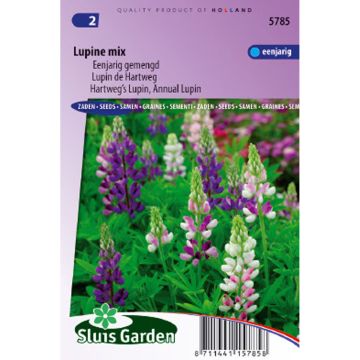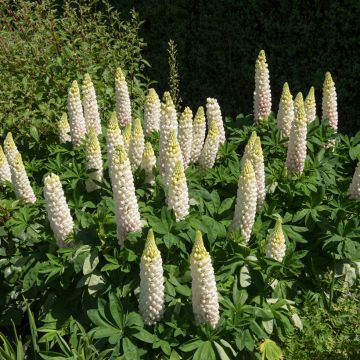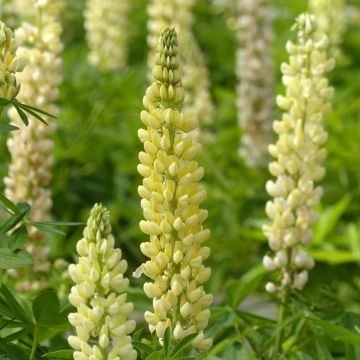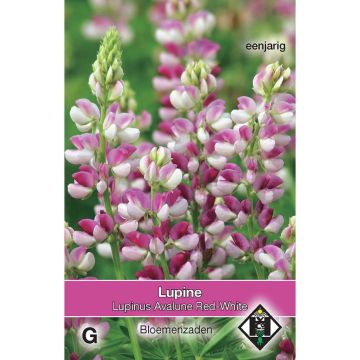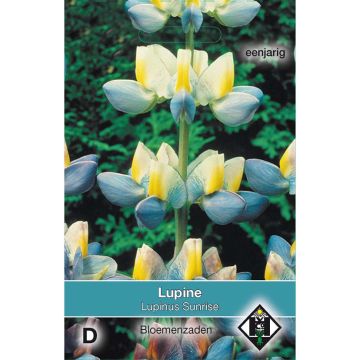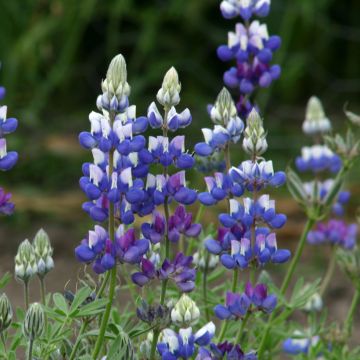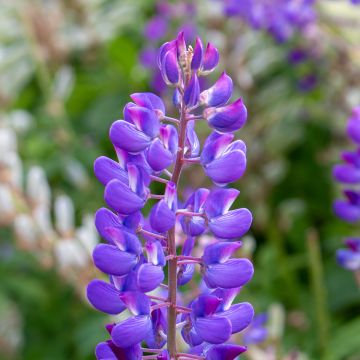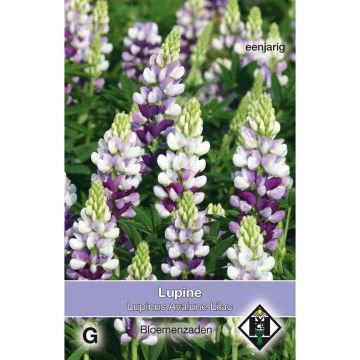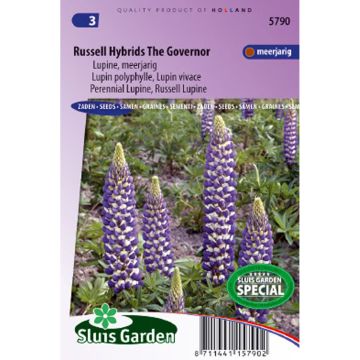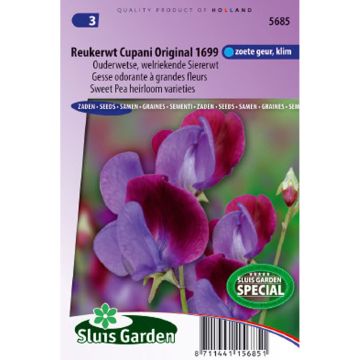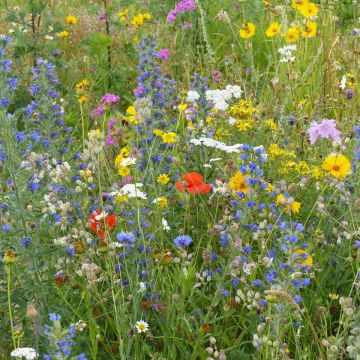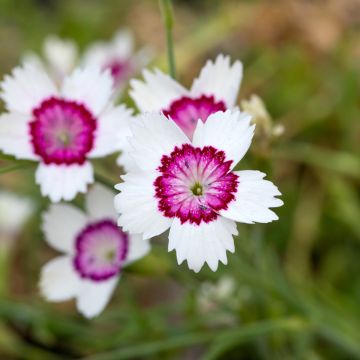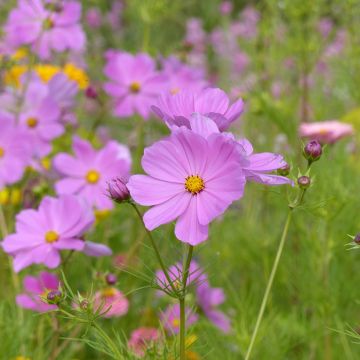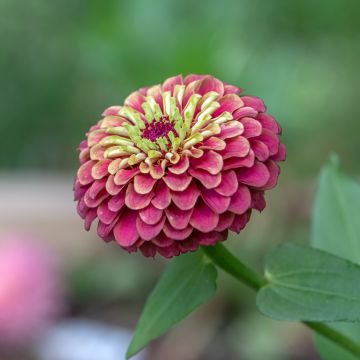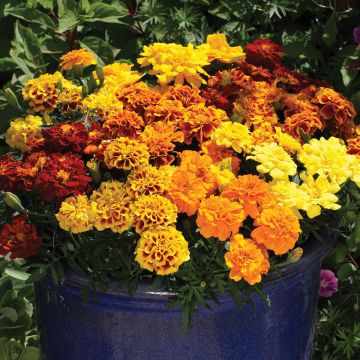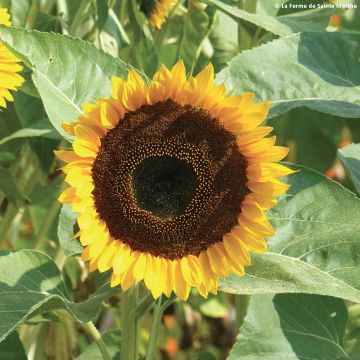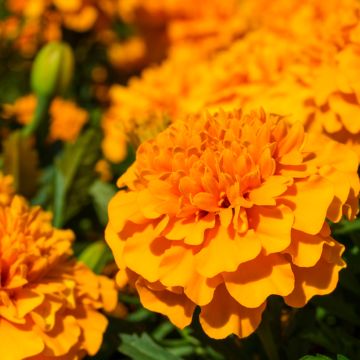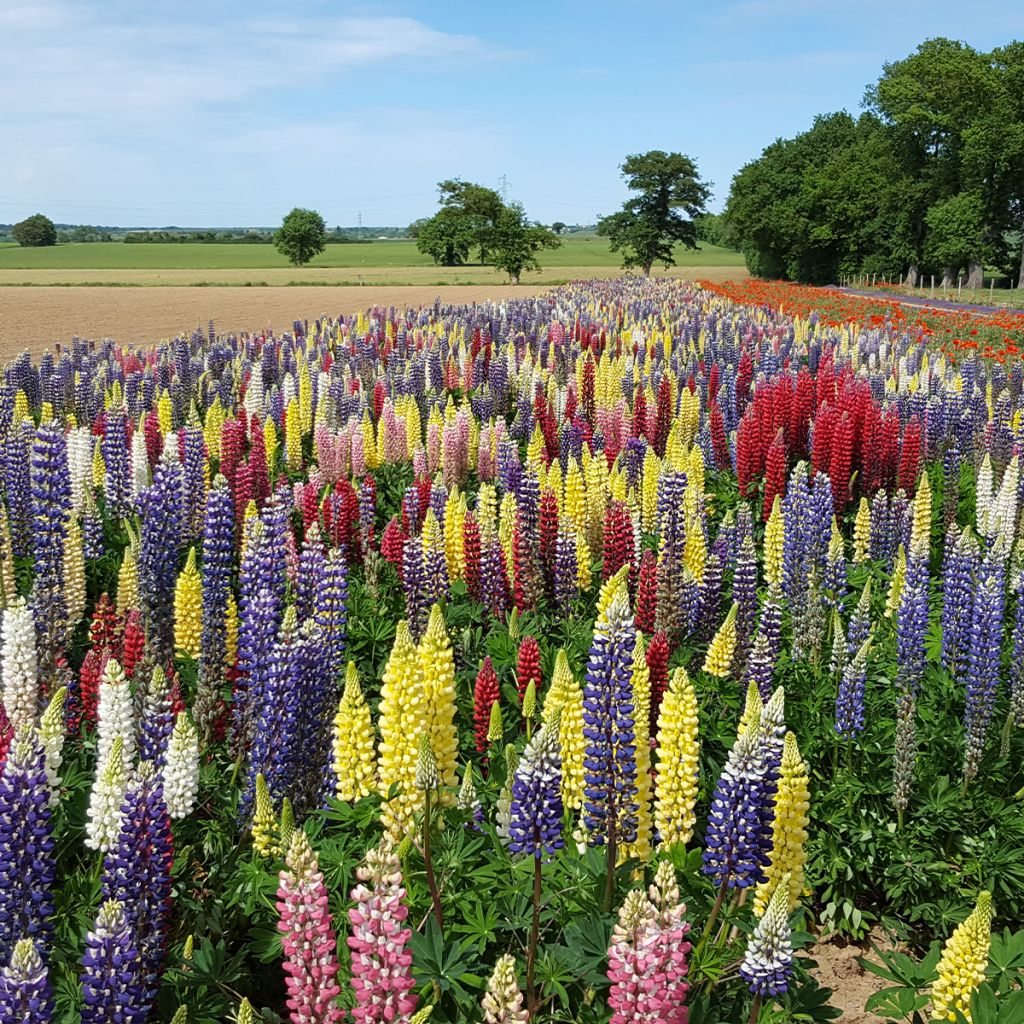

Graines de Lupin vivace Band Of Nobles Mixed - Lupinus polyphyllus
Lupinus Band Of Nobles - Perennial Russell Lupin Seeds
Lupinus polyphyllus Band Of Nobles
Garden Lupin, Large-leaved Lupin, Big-leaved Lupin, Russell Lupin
This item cannot be shipped to the selected country
Dispatch by letter from €3.90
Delivery to Corse prohibited
More information
Schedule delivery date,
and select date in basket
This plant carries a 6 months recovery warranty
More information
We guarantee the quality of our plants for a full growing cycle, and will replace at our expense any plant that fails to recover under normal climatic and planting conditions.
Seed-only orders are dispatched by sealed envelope. The delivery charge for seed-only orders is €3.90.
Delivery to Corse prohibited: UE law prohibits the import of this plant from mainland France to Corse as part of the fight against Xylella fastidiosa. Please accept our sincere apologies.
More information
Does this plant fit my garden?
Set up your Plantfit profile →
Description
'Bands of Nobles Mixed' is a flamboyant selection of perennial Russel lupins. These brightly coloured classics are tried and tested, flowering profusely over a long period of time. Perfect for cottage gardens and cutting! Easy to grow in deep, cool, light soil in a sunny position.
The lupin is a genus that encompasses 200 to 1000 species, native to the American continent. They are either annual or perennial, herbaceous or woody-based. Lupins are often grown as a food source throughout the world. This does not apply to ornamental varieties however, as most contain high levels of alkaloids in their seeds and are highly toxic. During the 1930s, George Russell was the first to cross-pollinate Lupinus polyphyllus and Lupinus hartwegii, creating a popular series of a varieties known as Russell hybrids. 'Bands of Nobles' forms 1 m tall plants. In late spring and early summer (May to July), erect, delicately fragrant flower spikes emerge, displaying a very wide range of colours including white, red, pink, purple, mauve, yellow and blue. They contrast beautifully with the dark green to bluish green palmate foliage.
Lupins are a cottage garden favourite, bringing a wonderful verticality and structure to the flower garden. Despite their large size, the sturdy stems don't require staking and are perfect at the back of summer bedding schemes in front of roses, peonies and Oriental poppies. Lupins enjoy cool, deep, acidic soils that are relatively poor and light, in full sun or half-shade. When left to self-seed, they can become a little invasive. Prevent this by pruning back the stems after flowering.
Report an error about the product description
Flowering
Foliage
Plant habit
Safety measures
Botanical data
Lupinus
polyphyllus
Band Of Nobles
Fabaceae
Garden Lupin, Large-leaved Lupin, Big-leaved Lupin, Russell Lupin
Cultivar or hybrid
ingestion
Cette plante est toxique si elle est ingérée volontairement ou involontairement.
Ne la plantez pas là où de jeunes enfants peuvent évoluer, et lavez-vous les mains après l'avoir manipulée.
Pensez à conserver l'étiquette de la plante, à la photographier ou à noter son nom, afin de faciliter le travail des professionnels de santé.
Davantage d'informations sur https://plantes-risque.info
Other Lupin seeds
Planting and care
Direct sow from May to July, as lupins are very tolerant to transplanting. Bury the seeds 6 mm deep in well-loosened soil, about 50 cm apart. The ideal temperature for germination is between 16 and 20°C. Germination usually takes 18 to 25 days. It is not necessary to thin out the seedlings. Lupins grow well in ordinary soil, however best results will be achieved in deep, well-drained to sandy, acidic soil and full sun. Perennial lupins live for 4 to 5 years.
Sowing period
Intended location
This item has not been reviewed yet - be the first to leave a review about it.
Flower seeds
Haven't found what you were looking for?
Hardiness is the lowest winter temperature a plant can endure without suffering serious damage or even dying. However, hardiness is affected by location (a sheltered area, such as a patio), protection (winter cover) and soil type (hardiness is improved by well-drained soil).

Photo Sharing Terms & Conditions
In order to encourage gardeners to interact and share their experiences, Promesse de fleurs offers various media enabling content to be uploaded onto its Site - in particular via the ‘Photo sharing’ module.
The User agrees to refrain from:
- Posting any content that is illegal, prejudicial, insulting, racist, inciteful to hatred, revisionist, contrary to public decency, that infringes on privacy or on the privacy rights of third parties, in particular the publicity rights of persons and goods, intellectual property rights, or the right to privacy.
- Submitting content on behalf of a third party;
- Impersonate the identity of a third party and/or publish any personal information about a third party;
In general, the User undertakes to refrain from any unethical behaviour.
All Content (in particular text, comments, files, images, photos, videos, creative works, etc.), which may be subject to property or intellectual property rights, image or other private rights, shall remain the property of the User, subject to the limited rights granted by the terms of the licence granted by Promesse de fleurs as stated below. Users are at liberty to publish or not to publish such Content on the Site, notably via the ‘Photo Sharing’ facility, and accept that this Content shall be made public and freely accessible, notably on the Internet.
Users further acknowledge, undertake to have ,and guarantee that they hold all necessary rights and permissions to publish such material on the Site, in particular with regard to the legislation in force pertaining to any privacy, property, intellectual property, image, or contractual rights, or rights of any other nature. By publishing such Content on the Site, Users acknowledge accepting full liability as publishers of the Content within the meaning of the law, and grant Promesse de fleurs, free of charge, an inclusive, worldwide licence for the said Content for the entire duration of its publication, including all reproduction, representation, up/downloading, displaying, performing, transmission, and storage rights.
Users also grant permission for their name to be linked to the Content and accept that this link may not always be made available.
By engaging in posting material, Users consent to their Content becoming automatically accessible on the Internet, in particular on other sites and/or blogs and/or web pages of the Promesse de fleurs site, including in particular social pages and the Promesse de fleurs catalogue.
Users may secure the removal of entrusted content free of charge by issuing a simple request via our contact form.
The flowering period indicated on our website applies to countries and regions located in USDA zone 8 (France, the United Kingdom, Ireland, the Netherlands, etc.)
It will vary according to where you live:
- In zones 9 to 10 (Italy, Spain, Greece, etc.), flowering will occur about 2 to 4 weeks earlier.
- In zones 6 to 7 (Germany, Poland, Slovenia, and lower mountainous regions), flowering will be delayed by 2 to 3 weeks.
- In zone 5 (Central Europe, Scandinavia), blooming will be delayed by 3 to 5 weeks.
In temperate climates, pruning of spring-flowering shrubs (forsythia, spireas, etc.) should be done just after flowering.
Pruning of summer-flowering shrubs (Indian Lilac, Perovskia, etc.) can be done in winter or spring.
In cold regions as well as with frost-sensitive plants, avoid pruning too early when severe frosts may still occur.
The planting period indicated on our website applies to countries and regions located in USDA zone 8 (France, United Kingdom, Ireland, Netherlands).
It will vary according to where you live:
- In Mediterranean zones (Marseille, Madrid, Milan, etc.), autumn and winter are the best planting periods.
- In continental zones (Strasbourg, Munich, Vienna, etc.), delay planting by 2 to 3 weeks in spring and bring it forward by 2 to 4 weeks in autumn.
- In mountainous regions (the Alps, Pyrenees, Carpathians, etc.), it is best to plant in late spring (May-June) or late summer (August-September).
The harvesting period indicated on our website applies to countries and regions in USDA zone 8 (France, England, Ireland, the Netherlands).
In colder areas (Scandinavia, Poland, Austria...) fruit and vegetable harvests are likely to be delayed by 3-4 weeks.
In warmer areas (Italy, Spain, Greece, etc.), harvesting will probably take place earlier, depending on weather conditions.
The sowing periods indicated on our website apply to countries and regions within USDA Zone 8 (France, UK, Ireland, Netherlands).
In colder areas (Scandinavia, Poland, Austria...), delay any outdoor sowing by 3-4 weeks, or sow under glass.
In warmer climes (Italy, Spain, Greece, etc.), bring outdoor sowing forward by a few weeks.

































